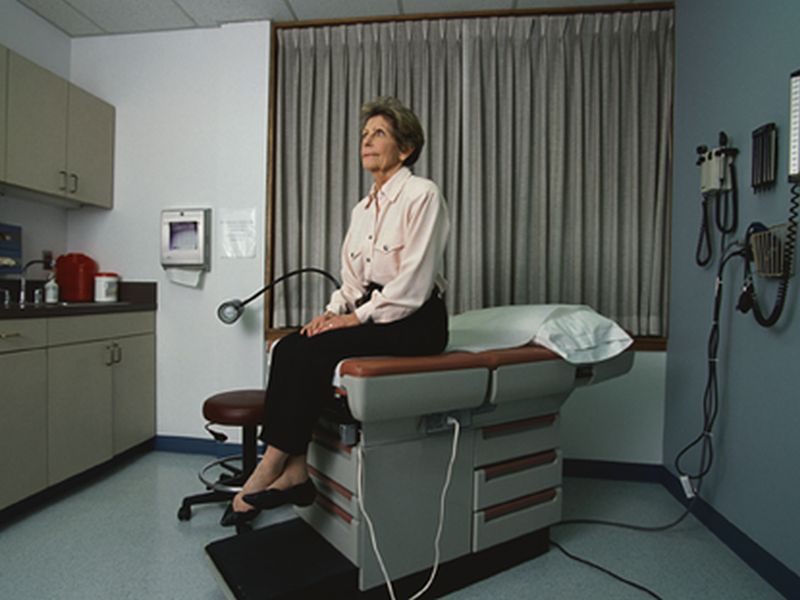
Tuesday, December 19, 2017

TUESDAY, Dec. 19, 2017 (HealthDay News) -- Treatments that help people beat cancer also can cause them to age prematurely and die sooner, Mayo Clinic researchers report.
Cancer survivors naturally age faster than others who haven't had cancer, and are more likely to develop long-term health problems related to aging while they're still relatively young, the study authors said.
These ailments can include hormone and gland disorders, heart problems, brittle bones, lung scarring and new cancers. Survivors also are more likely to become frail as the years pass.
Childhood cancer survivors' estimated life expectancy is 30 percent lower than that of the general population, and they are three to six times more likely to develop a second cancer, the researchers noted.
With the number of cancer survivors growing, the medical profession needs to start paying more attention to how to keep these people healthy throughout their now-extended lifetimes, said senior researcher Dr. Shahrukh Hashmi. He is an assistant professor of medicine at the Mayo Clinic in Rochester, Minn.
"We are now beginning to see the gravity of a multitude of complications among cancer survivors," Hashmi said. "There is an essential and immediate need for formal cancer survivorship programs to prevent complications in millions of cancer survivors."
Currently there are about 30 million cancer survivors worldwide, but researchers predict that about 19 million new cancer diagnoses will be made every year by 2025. Many of those people will survive their cancer, only to face long-term health consequences.
According to Dr. Charles Shapiro, director of cancer survivorship programs at the Tisch Cancer Institute at Mount Sinai, in New York City, "We're now struggling with our own success. This only comes up as a product of how well we're doing in terms of cancer mortality and increasing the population of survivors. Now we have to deal with the consequences. Sure, you're alive and that's great, but there are consequences."
Harsh chemotherapy and radiation therapy kill off cancer cells, but they also damage normal healthy tissues, Hashmi and colleagues explained. This diminishes the body's natural resilience.
Other drugs used in cancer treatment also appear to contribute to accelerated aging. These drugs can include steroids, hormone therapy and targeted cancer treatments.
The study authors said a wide-ranging review of scientific evidence found that:
- Chemotherapy, radiation therapy and other cancer treatments cause aging at a genetic and cellular level, prompting DNA to start unraveling and cells to die off sooner than normal.
- Bone marrow transplant recipients are eight times more likely to become frail than their healthy siblings.
- Long-term steroid treatment is associated with an increased risk of cataracts, brittle bones, nerve damage, impaired wound healing and diminished immune response.
- Cancer drugs have been associated with hearing loss, reduced thyroid levels, high blood pressure, heart failure, muscle weakness, arthritis, infertility, constipation, and kidney and liver diseases.
- Radiation therapy has been linked to dementia, memory loss, hardened arteries and secondary cancers.
- The hormone drug Tamoxifen, used against breast cancer, has been associated with cataracts.
And, Shapiro added, women who receive chemotherapy are more likely to go into early menopause.
There's now a movement afoot to reduce the amount of treatment needed to beat cancer, as a means of either avoiding or easing these aging effects, Hashmi and Shapiro said.
Studies and clinical trials are evaluating ways to de-escalate treatments for cancers like lymphoma, Shapiro said.
Cancer survivors also can help themselves by adopting a healthier lifestyle, Hashmi advised -- quitting smoking, limiting alcohol consumption, eating right and exercising regularly.
"Taking these steps will help reduce the chances of new cancer development and the development of heart disease," Hashmi said.
The new study was published online Dec. 18 in the journal ESMO Open.
SOURCES: Shahrukh Hashmi, M.D., assistant professor of medicine, Mayo Clinic, Rochester, Minn.; Charles Shapiro, M.D., director, cancer survivorship programs, Tisch Cancer Institute, Icahn School of Medicine at Mount Sinai, New York City; Dec. 18, 2017, ESMO Open, online
HealthDay
Copyright (c) 2017 HealthDay. All rights reserved.
News stories are written and provided by HealthDay and do not reflect federal policy, the views of MedlinePlus, the National Library of Medicine, the National Institutes of Health, or the U.S. Department of Health and Human Services.
- More Health News on
- Cancer









































No hay comentarios:
Publicar un comentario